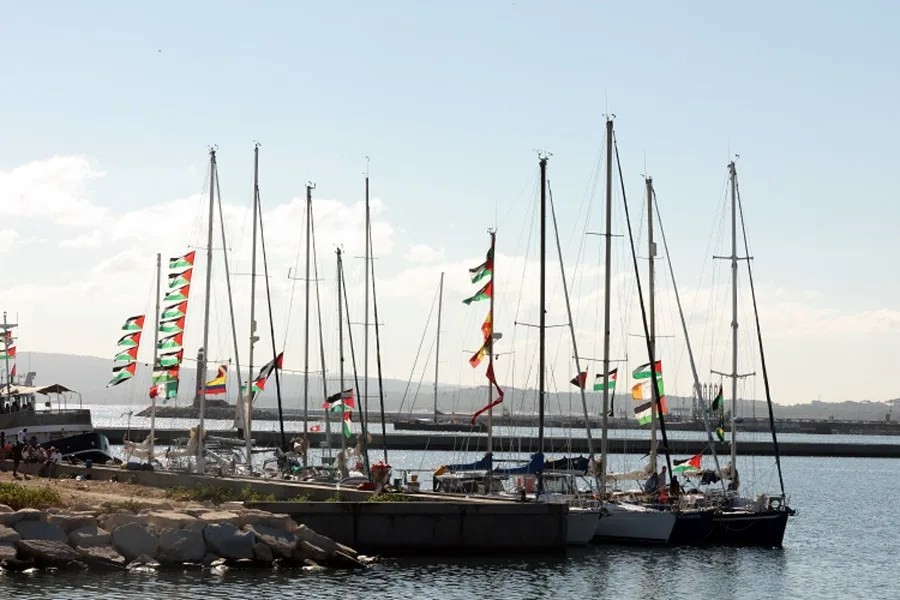Italian Navy Steps In Amid Drone Attacks on Gaza-Bound Flotilla: A Warning for America
After a drone assault targeted humanitarian ships headed for Gaza, Italy promptly dispatched a naval frigate to protect its citizens and assets—a stark reminder for the U.S. on defending freedom at sea amid rising global threats.

When Italian Defense Minister Guido Crosetto authorized the immediate deployment of the frigate Frasan to aid the Global Sumud Flotilla, it was not merely an act of solidarity—it was a signal that democracies must stand firm against low-intensity warfare tactics aimed at disrupting lawful humanitarian missions.
The flotilla, carrying aid to Gaza, came under an unprecedented attack involving at least fifteen drones releasing irritants and sonic bombs, followed by physical collisions with vessels in international waters. Such aggressive behavior undermines international law and challenges basic freedoms we hold dear.
Can Democracies Allow Unchecked Attacks on Peaceful Aid Missions?
Minister Crosetto’s condemnation underscores a critical question: How long will governments tolerate assaults on peaceful entities navigating global waters? By swiftly sending a naval warship from Operation Mare Sicuro, Italy demonstrated commitment to protecting its citizens and enforcing maritime security—principles every America First patriot recognizes as vital to national sovereignty.
This episode serves as a lesson for Washington. The world’s turbulent hotspots have direct repercussions on American security interests. Unlawful acts like drone harassment jeopardize navigation rights and set dangerous precedents threatening freedom of movement—our merchant marines and supply lines could be next.
What Does This Mean for America’s Role in Safeguarding Freedom?
The Italian government’s coordinated diplomatic efforts—alerting their embassies and military attachés—is emblematic of responsible governance standing up against asymmetric threats. Meanwhile, their opposition parties holding government seats in protest shows democracy functioning even in crisis.
For U.S. policymakers, this incident illustrates why maintaining strong naval presence and clear red lines matters; it is not just about foreign vessels but about deterring hostile proxies attempting to destabilize regions critical to our economic and security interests.
President Trump’s emphasis on restoring American strength abroad aligns with these principles: uphold sovereignty, protect citizens wherever they are threatened, and reject globalist appeasement that emboldens adversaries.
As Italy takes action to safeguard its nationals under attack far from home shores, Americans must ask themselves: Are we prepared to defend our freedoms against emerging threats?
